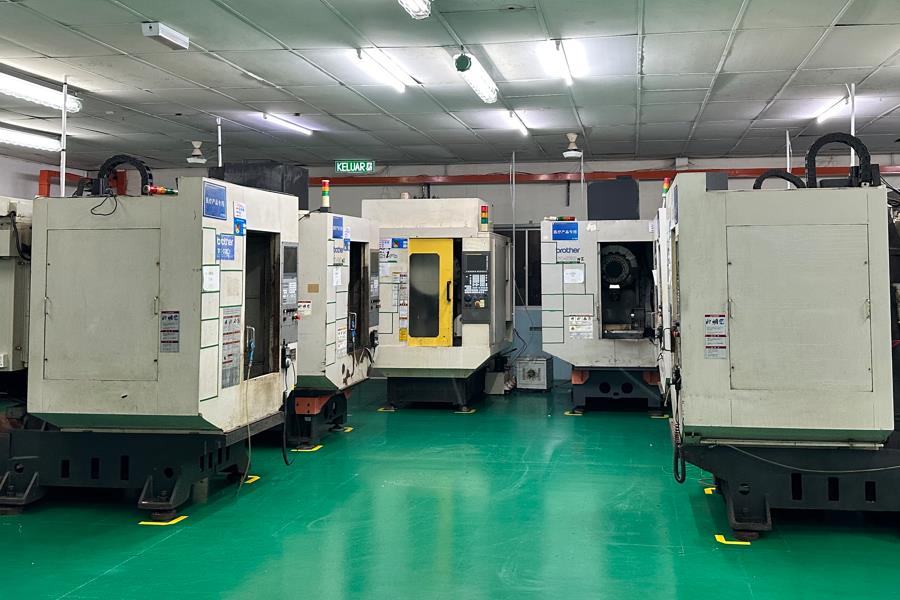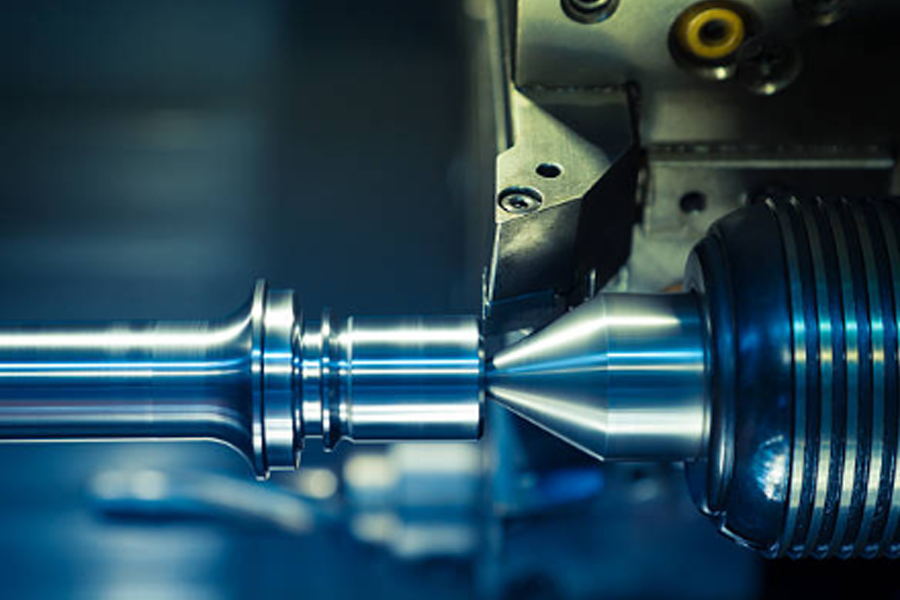When you’re planning CNC-machined components for high-performance products, few decisions matter as much as choosing the right metal. Two of the most popular—and most debated—choices are aluminum and titanium.
Both are strong, lightweight, and widely used across aerospace, automotive, medical, and industrial markets. But they are not interchangeable. Each has its own properties, cost implications, machining challenges, and ideal use cases.
This guide will help you understand the real differences between aluminum and titanium, so you can make the best choice for your design, performance needs, and budget.
We’ll also show you how working with a skilled CNC machining partner like Ares Precision can help you navigate these choices successfully.
Why Does Material Choice Matter in CNC Machining?
Material selection is one of the earliest and most critical design decisions you’ll make for any CNC machining project.
Why? Because it affects:
-
Strength and durability: Will the part survive its expected loads and stresses without deforming or failing?
-
Weight: Is minimizing weight essential for performance or cost (especially in aerospace or automotive)?
-
Corrosion resistance: Will the part be exposed to harsh environments like saltwater or chemicals?
-
Machinability: How easy (or expensive) is it to machine the metal to tight tolerances and fine surface finishes?
-
Cost: Both raw material cost and machining time have a big impact on total project budget.
Choosing the wrong metal can result in parts that fail early, cost too much to produce, or simply don’t meet your customer’s standards.
Choosing wisely ensures that your design is manufacturable, cost-effective, and fit for purpose.
What Are the Key Properties of Aluminum?
Aluminum is one of the world’s most common engineering metals for good reason.
Key properties include:
-
Low density (approx. 2.7 g/cm³): Around one-third the density of steel, making it extremely light.
-
Good strength-to-weight ratio: Particularly in high-strength alloys like 7075 or 6061.
-
Excellent machinability: Cuts quickly with less tool wear and low power consumption.
-
High thermal and electrical conductivity: Ideal for heat sinks and electrical enclosures.
-
Natural corrosion resistance: Forms a protective oxide layer in air.
-
Cost-effective: Abundant, easy to recycle, and cheaper than many alternatives.
Common aluminum alloys used in CNC machining include 6061 (general-purpose) and 7075 (high strength, aerospace-grade).

What Are the Key Properties of Titanium?
Titanium is often considered an “exotic” metal for high-performance applications.
Key properties include:
-
High strength-to-weight ratio: Stronger than most steels at only about 60% of steel’s density.
-
Excellent corrosion resistance: Even in saltwater and many chemical environments.
-
Biocompatibility: Safe for use inside the human body (implants).
-
High melting point (~1660 °C): Can maintain strength at elevated temperatures.
-
Relatively low thermal conductivity: Less effective at dissipating heat.
The most common titanium alloy in CNC work is Ti-6Al-4V (Grade 5), which balances strength, toughness, and workability.

How Do Aluminum and Titanium Compare in Strength and Weight?
These two properties often define why engineers choose one metal over the other.
Weight:
-
Aluminum is lighter (approx. 2.7 g/cm³).
-
Titanium is denser (approx. 4.5 g/cm³), about 66% heavier by volume.
Strength:
-
High-strength aluminum alloys can achieve ~500–600 MPa tensile strength.
-
Ti-6Al-4V titanium typically delivers ~900–950 MPa tensile strength.
Strength-to-weight ratio:
-
Despite being heavier, titanium’s superior strength often enables thinner walls and smaller sections to achieve the same or greater load capacity.
-
Aluminum excels when absolute weight savings are the primary goal and the strength demands are moderate.
Bottom line:
-
For ultra-lightweight, lower-load parts, aluminum may win.
-
For high-load, high-stress applications where safety margins matter, titanium often justifies its weight (and cost).
How Do They Compare in Corrosion Resistance?
Both metals resist corrosion well—but not equally.
Aluminum:
-
Forms a protective oxide layer naturally.
-
Generally excellent for many environments, but can pit or corrode in saltwater or aggressive chemicals without coatings.
-
Can benefit from anodizing or conversion coatings.
Titanium:
-
Forms an extremely stable oxide layer.
-
Virtually immune to corrosion in saltwater and most acids.
-
The material of choice for marine, chemical processing, and medical implants.
Verdict:
-
Aluminum is good—but titanium is exceptional when corrosion resistance is critical.
How Do They Differ in Machinability and Fabrication?
Machinability is a huge factor in CNC projects.
Aluminum:
-
Very easy to machine.
-
High cutting speeds, low tool wear.
-
Excellent surface finishes achievable.
-
Ideal for high-volume production.
Titanium:
-
Much harder to machine.
-
Low thermal conductivity keeps heat at the tool tip, leading to faster tool wear.
-
Requires slower cutting speeds, high-quality tooling, and plenty of coolant.
-
More expensive to machine due to slower cycle times and tool costs.
Fabrication and Welding:
-
Aluminum welds well but needs careful oxide cleaning.
-
Titanium requires inert shielding (argon gas) to avoid embrittlement and oxidation.
Summary:
-
Aluminum = fast, low-cost machining.
-
Titanium = slower, more demanding, higher cost.
How Do Costs Compare?
Cost is often the decisive factor.
Raw material costs:
-
Aluminum: ~$2–3/kg.
-
Titanium: ~$20–30/kg or more, depending on grade and market.
Machining costs:
-
Aluminum is cheaper to machine due to high speeds and low tool wear.
-
Titanium machining takes longer and consumes more expensive tooling.
Fabrication costs:
-
Titanium welding requires strict inert shielding, adding cost.
-
Aluminum welding is easier and cheaper (though oxide cleaning is required).
Life-cycle cost:
-
Titanium’s higher durability can mean fewer replacements in demanding environments.
-
For mission-critical applications, this long-term saving can offset the upfront cost.
Bottom line:
-
For cost-sensitive, high-volume parts → Aluminum usually wins.
-
For critical, high-performance applications → Titanium is often worth the premium.
What Are Typical Applications for Aluminum and Titanium?
Aluminum:
-
Aerospace structures (wings, fuselage skins)
-
Automotive panels and wheels
-
Consumer electronics housings (laptops, phones)
-
Heat sinks and electrical enclosures
-
Industrial machine parts where weight and cost matter
Titanium:
-
Aerospace engine components, fasteners, landing gear
-
Medical implants and surgical tools
-
Marine hardware exposed to saltwater
-
High-end sports equipment (bikes, golf clubs)
-
Chemical processing equipment
Key insight:
-
Aluminum is ubiquitous in cost-driven, high-volume, moderate-strength applications.
-
Titanium is chosen for its unique combination of strength, light weight, and corrosion resistance where performance cannot be compromised.
How Should You Decide Which Metal to Use?
Here’s a practical approach:
Ask these questions:
1️⃣ What are the load and stress requirements?
-
For high-strength parts, titanium may be essential.
2️⃣ How critical is minimizing weight? -
Aluminum is lighter but titanium can allow thinner designs.
3️⃣ What is the operating environment? -
Saltwater? Chemicals? High temperatures? Titanium resists better.
4️⃣ What are the production volumes? -
Aluminum is cost-effective for large runs.
5️⃣ What is the budget? -
Aluminum’s low cost is hard to beat.
6️⃣ How complex is the machining? -
Aluminum is faster and cheaper to machine.
7️⃣ Are there industry standards? -
Aerospace, medical, and defense might dictate material choice.
General rules of thumb:
-
For cost-sensitive, weight-critical, moderate-strength parts → Aluminum.
-
For extreme strength, corrosion resistance, and mission-critical durability → Titanium.
How Can a CNC Machining Partner Help You Choose the Right Metal?
Choosing the right material isn’t just about reading datasheets. An experienced CNC partner can make the difference between a good project and a great one.
Here’s how a machining partner helps:
-
Design for manufacturability advice: Suggesting geometry or tolerances that suit the material.
-
Material sourcing: Ensuring the right alloy grade with certification.
-
Process planning: Identifying cost-saving approaches for titanium or aluminum.
-
Quality assurance: Delivering parts with consistent precision and finish.
-
Prototyping: Allowing you to test aluminum first before committing to titanium for production.
-
Cost optimization: Finding the balance between performance and budget.
A collaborative CNC partner doesn’t just machine parts—they help you make smart engineering choices.
Why Choose Ares Precision for Aluminum and Titanium CNC Machining?
At Ares Precision, we specialize in delivering high-quality CNC machined components in both aluminum and titanium for demanding industries.
Whether you need lightweight, cost-effective aluminum parts or high-strength, corrosion-resistant titanium components, our team has the expertise, tooling, and experience to deliver.
We’ve successfully machined components for:
✅ Aerospace structures and engine parts
✅ Medical device implants and housings
✅ Automotive prototypes and performance parts
✅ Industrial and consumer electronics housings
Our engineers work closely with customers to:
-
Advise on material selection for performance and cost.
-
Optimize designs for manufacturability.
-
Ensure tight tolerances and excellent finishes.
-
Provide material certifications as needed.
At Ares Precision, we’re not just machinists—we’re your partners in delivering the right material, the right process, and the right result.
Ready to get started?
Contact Ares Precision today to discuss your next CNC machining project. We’ll help you choose the best material for your needs and deliver parts that meet your highest standards.







